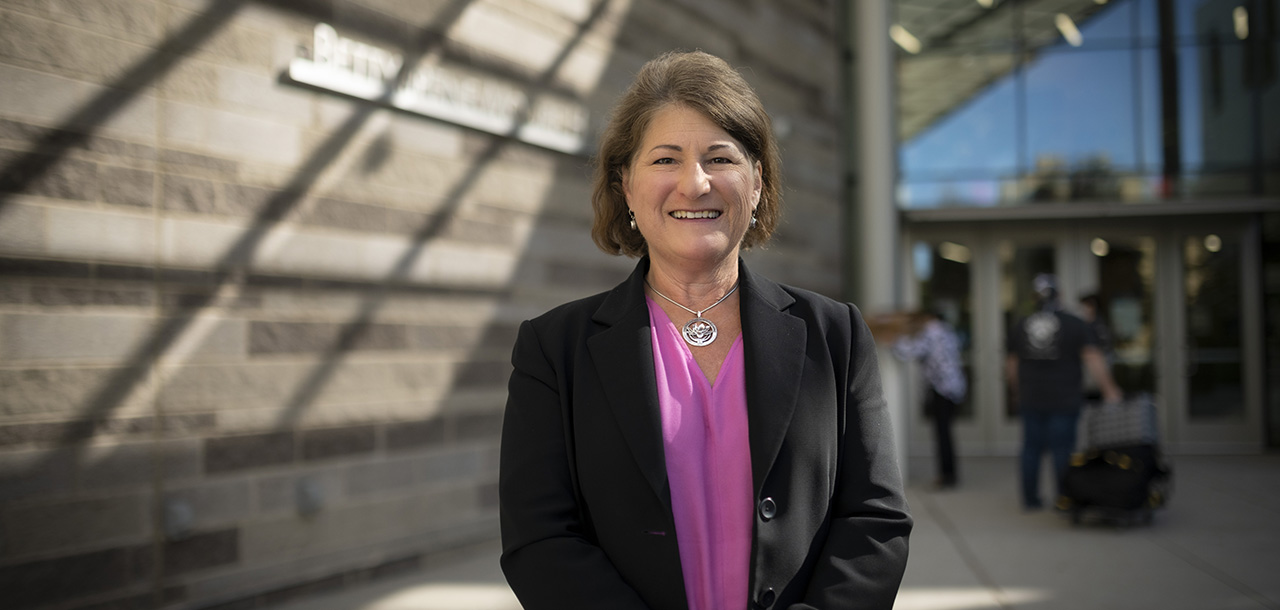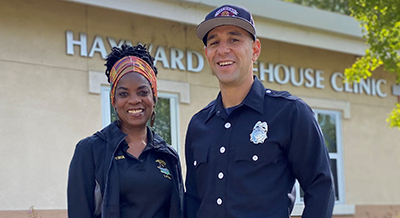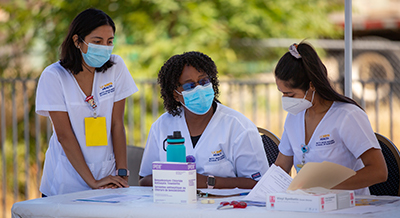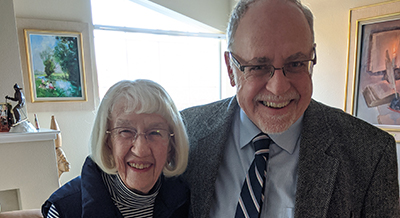Confusing discharge instructions. Difficult nursing care tasks. Stress, anxiety and worry. Those are the challenges of caregivers when taking a family member or friend home from the hospital.
Understanding family dynamics. Giving culturally appropriate care instructions. Ensuring real understanding of complex care details. Those are the difficulties faced by health care providers when sending a person back into their home or community setting.
According to AARP, 97% of health care providers say caregivers play an important role in care, but fewer than half of caregivers say they’re prepared for the demands of caring for a family member or friend at home.
“I conducted a study of caregivers during COVID-19, where I introduced a caregiver assessment and associated tailored plan of care program in hospital. We found that caregivers didn’t feel as prepared for their role during the pandemic and needed other means of outreach by health professionals since they had fewer financial and social network resources,” explains Michelle Camicia, director of the Kaiser Foundation Northern California Rehabilitation Center and 2018 Doctor of Philosophy alumna of the Betty Irene Moore School of Nursing.
Before the pandemic, Camicia participated in the pilot of the school’s Family Caregiving Graduate Academic Unit Certificate Program developed by the Family Caregiving Institute. When institute leaders approached her with the idea to adapt the program into a continuing education study for health care professionals, she jumped at the chance. The result is a new program and new partnership seeking to improve those relationships and expand the impact of the institute.
Kaiser Permanente’s KP Scholars Academy and the Family Caregiving Institute at the Betty Irene Moore School of Nursing at UC Davis launched the Family Caregiving Champion Certificate Pilot Program for Kaiser Permanente clinicians this summer. The first cohort of KP leaders includes 11 nurses and one chaplain.
Registered nurse Linda Daniel knows all too well the burden placed on families. When her ill parents opted for care at home, she witnessed the struggles in her own family.
“My family volunteered to help but had no skills. As primary caregiver, I had to accept what level of skill they each had and what training and encouragement was needed to make them feel comfortable,” recalls Daniel, the director of Professional Nursing Development at Kaiser Permanente. “I plan to grow and learn from this program, so that I may share with my staff. We need to recognize the caregivers in the hospital and start their training and support immediately.”
During the six-month online course, participants learn through a mixture of self-paced online modules and activities, live Zoom presentations, cohort discussions, case study analysis and self-reflection. The certificate supports workforce training priorities, such as those highlighted in the 2021 RAISE (Recognize, Assist, Support and Engage Family Caregivers Act) initial report to the U.S. Congress. Prepared by the RAISE Family Caregiving Advisory Council, which provides recommendations to the secretary of the U.S. Department of Health and Human Services, the report cites the importance of including caregivers in the plan of care and preparing the caregiver both with tools and the confidence to perform care at home, which contributes to better health outcomes.
“We are excited to partner with the KP Scholars Academy on this pilot program,” says Heather M. Young, the institute’s associate director for strategic partnerships. “Evolving the graduate certificate in family caregiving into a certificate for working professionals broadens our education mission to support health care providers in integrating caregivers into the care process from hospital to home or community settings.”
Young and Camicia believe this is the beginning of a paradigm shift to family integrated care and that this program can serve as a model for other health systems. For Camicia, it’s a dream come true.
“This important audience can influence the health system to make changes that are necessary to promote family-centered care. To be able to disseminate information and practices that I know empirically and intrinsically will improve our care delivery is a wonderful opportunity. And to be teaching alongside Heather Young is definitely a highlight of my career.”






